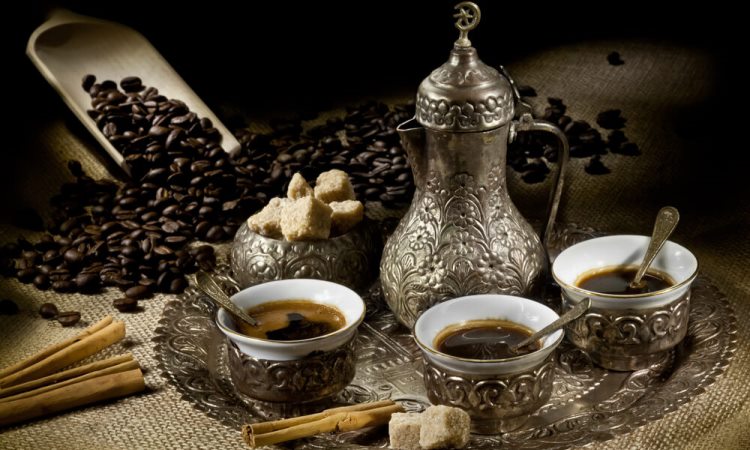A Splendid Saudi Heritage of Coffee Production

If you are a Coffee holic you must stand with Saudi Arabia’s call for the preservation of the pleasant and inspiring art of Khawlani coffee production. This coffee is an inseparable part of Arab tradition. Saudi Arabia is not a mere religious axis for Hajj and Umrah. It is the representative of an outstanding socio cultural and historical Arabian culture.
Arab Tradition with its Distinctive Nature
The Kingdom of Saudi Arabia is not only commemorable for the Muslims, but also enjoys a remarkable place in the whole world. This kingdom stands distinct for its unique society, laws, culture, and tradition. These traditions are systematically passed from one generation to another.
The inevitable Arab Coffee Tradition
Coffee is the permanent fixture of each and every sort of culture. It is served everywhere in small cups in all sorts of ceremonies informal friend gatherings shops and cafes.
However, in terms of world wide Coffee trade, Saudi Arabia holds a distinct position in the world. This Arab country is the possessor of the port of Mokha in Yemen which is the purveyor of the delicious chocolate coffee named as “ Mocha Coffee”
The Kingdom of Saudi Arabia as a Coffee Factory
Saudi Arabia is regarded as one of the largest coffee producers of the fabled Arabica Coffee. It is also ranked as one of the biggest consumers of the beverages. The Saudi city named Jezan is the mountainous region located in the southern most part which borders Yemen. This city is producing another delectable hot tongue soothing drink named Black Gold in the form of prize coffee.
Jazan A Home of Khawlani Coffee Production
Jazan is the home of the reverential tradition of Khawlani Coffee Production. This awe inspiring Arabian coffee tradition has been handed from one generation to another. The Pioneers of this spectacular Coffee Production tradition are the ancient tribes of Khawlan. These coffee expert tribal people had grown up the pure coffee beans and processed them in the lush green valley of Jazan. These coffee beans were also named as Khawlan beans. The experienced coffee producers have taken over 300 years in practicing the skills and techniques of this coffee production.
This systematic tradition has also been passed from generation to generation. The Saudi people or Yemani dwellers in particular, still enjoy the warmth of this lip smacking drink.
Jazan A Touristic Coffee House
Among other Saudi cities, Jazan is another worth roaming Saudi city. This city welcomes the visitors with its scenic mountains, lush green Wadis (valleys), deep forests, hot springs and boundless fertile land.
The roamers are welcome to soothe themselves with the Jezan signature Khawleen coffee in the evening after a busy day Jezan trip to explore the wonders of the place. You can also visit the famous coffee mountains such as Al Nakhif, Khashir, and Al Hashr,
Moreover, this Saudi city also organizes the Coffee festival to please its visitors.
Khawlani Coffee Beans A Symbol of Saudi Hospitality
Among the Jezan Dwellers, the Khawlani Coffee is regarded as the symbol of hospitality and enjoyment among the local fellows. The experts call this Khawlani coffee as the second commodity in the world. The process of Coffee production also strengthens the familial bonds and love among the makers themselves.
There are more than 70,000 coffee plants cultivated by 600 farmers who produce nearly 500 tons of coffee a year
Saudi Steps for the preservation of the Khawani Coffee Production Heritage.
Despite having this laudable coffee tradition, there is the dearth/shortage of requisite services. The Saudi Ministry of Agriculture is taking measures to improve the poor conditions of the farmers. It aims at making Jezan another worth visiting tourist place.
Moreover, for the world’s public awareness and the preservation of this age old unique Arab heritage, the Saudi Heritage Preservation Society is asking UNESCO to provide inevitable protection to this ancient coffee making art.






